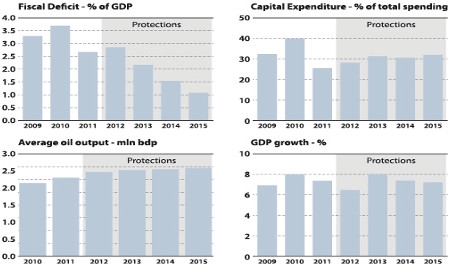In January 2012, Arunma Oteh, the Director General of Nigeria’s Security and Exchange Commission (SEC) was tasked with the unenviable job of cleaning up the Nigerian Stock Exchange (NSE), which was rife with insider trading and other abuses.
Ms Oteh, nicknamed the ‘The Iron Lady of Nigeria’, was adamant to reform the NSE and also end the days of impunity. In a hard-line stance similar to that taken by the Governor of the Central Bank of Nigeria, she removed individuals or entities from the NSE accused of malpractice with some facing civil and criminal charges.
Her job was not made easier by those within the system who were keen to undermine reform. Some even tried to claim that the former VP of the African Development Bank and Harvard Business School MBA holder was not qualified for the job – a claim she dismissed as “laughable” in a BBC interview in 2010.
“I think the market was under-regulated. People now understand that integrity is the foundation of any market. They must have confidence in the market. Part of what we did in 2010 was to change the general psyche. We sent out a message that our investors are protected,” she says.
Another important task for the SEC boss was finding new blood to oversee things within the NSE. In January 2011, Oscar Onyema, who had over 20 years of experience in US financial markets, was appointed as CEO. Mr Onyema was keen to make sure the NSE was “doing its bit” as a self-regulator. “We believe that regulation forms the bedrock from which you can get investor confidence,” he says.
The reform policies of the Oteh-Onyema team have, without a shadow of a doubt, transformed the NSE. In 2012, the NSE closed the year with gains of 34 per cent, a long way away from the collapse of the market in 2008 and 2009 by 45.7 and 33.7 per cent respectively. “The NSE rediscovered itself and outperformed analysts’ forecasts for 2012, posting an inspiring performance that surpassed those of G7 countries led by Germany and 33 other frontier markets around the globe,” Mr Onyema adds.
Both Oteh and Onyema are firm believers in the capital markets as the driver of the Nigerian economy, which is already flying high.
The NSE chief executive says that Nigeria is preparing to assume a leadership role in contributing to world growth through its own economic expansion.
“We at the NSE are positioning ourselves to help drive that growth, by making sure that we facilitate appropriate capital and financing resources that are looking to make investments in this area.”
More participation in the NSE from those in the utilities, telecom and oil and gas sectors could bring even more gains to the NSE and subsequently more economic prosperity.
According to Ms Oteh, only 17 per cent of the economy is represented on the capital markets. “Can you imagine how it would be when the 16 to 17 power generation and distribution companies get listed? Not to mention those outside the power sector, those in telecoms and oil and gas – strategic sectors in this country with a number of indigenous players who are looking to list.”
Evaluating his work at the NSE, Mr Onyema comments that: “We want to position ourselves as the gateway to African markets. If people are looking to participate in Africa and they think of Nigeria first and accessing the country through the NSE, then I will have done my job.”

0 COMMENTS